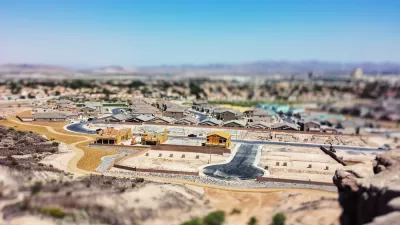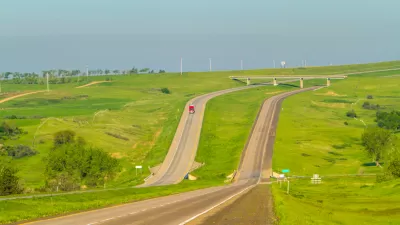Barring that, he has some eight proposals for the transportation reauthorization bill, including eliminating long-range transportation planning and clean air mandates.
O'Toole writes, "Urban mass transit is the most disappointing performer and least-productive part of the nation's transportation system. Since 1964, when Congress first passed the Urban Mass Transportation Act, transit costs have risen far faster than either revenues or ridership. This signals a tremendous decline in productivity.
"It's uncommon to find such a rapid productivity decline in any industry," wrote University of California economist Charles Lave in 1994. "If transit productivity had merely remained constant since 1964," Lave wrote, "total operating costs would be more than 40 percent lower" in 1985, the last year for which he had data. By 2006, after adjusting for inflation, operating costs per trip were 2.3 times as much as they were in 1964, while average fares had fallen by 24 percent from 1964.43 All of this additional cost came out of taxpayers' pockets."
FULL STORY: Getting What You Paid For -- Paying For What You Get: Proposals for the Next Transportation Reauthorization

Manufactured Crisis: Losing the Nation’s Largest Source of Unsubsidized Affordable Housing
Manufactured housing communities have long been an affordable housing option for millions of people living in the U.S., but that affordability is disappearing rapidly. How did we get here?

Americans May Be Stuck — But Why?
Americans are moving a lot less than they once did, and that is a problem. While Yoni Applebaum, in his highly-publicized article Stuck, gets the reasons badly wrong, it's still important to ask: why are we moving so much less than before?

Research Shows More Roads = More Driving
A national study shows, once again, that increasing road supply induces additional vehicle travel, particularly over the long run.

Judge Halts Enforcement of Anti-Homeless Laws in Grants Pass
The Oregon city will be barred from enforcing two ordinances that prosecute unhoused residents until it increases capacity and accessibility at designated camping sites.

Advancing Sustainability in Los Angeles County Schools
The Los Angeles County Office of Education’s Green Schools Symposium brings together educators, students, and experts to advance sustainability in schools through innovative design, climate resilience strategies, and collaborative learning.

Using Old Oil and Gas Wells for Green Energy Storage
Penn State researchers have found that repurposing abandoned oil and gas wells for geothermal-assisted compressed-air energy storage can boost efficiency, reduce environmental risks, and support clean energy and job transitions.
Urban Design for Planners 1: Software Tools
This six-course series explores essential urban design concepts using open source software and equips planners with the tools they need to participate fully in the urban design process.
Planning for Universal Design
Learn the tools for implementing Universal Design in planning regulations.
City of Moreno Valley
Institute for Housing and Urban Development Studies (IHS)
City of Grandview
Harvard GSD Executive Education
NYU Wagner Graduate School of Public Service
City of Cambridge, Maryland
Newport County Development Council: Connect Greater Newport





























